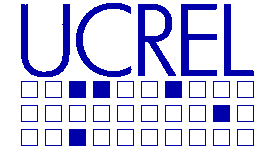
Corpus Linguistics 2015
Lancaster University, UK – 21st to 24th July 2015
NEW (30/5/2015): Call for posters on late-breaking results
The CL2015 organising committee is pleased to issue a call for posters on late-breaking results on any of the topics in the conference’s scope. By “late-breaking” we mean research which was not at a sufficiently advanced stage for an abstract submission to be made in the main submission cycle, but which has now reached that point.
We anticipate that the research in question will still be in its earliest phases. “Late-breaking results” include – but are not necessarily limited to - pilot study results, corpus creation activities currently in hand, newly-developed software, and so on.
- Abstracts should be 400-750 words in length. They must be formatted using the conference stylesheet (see below)
- We especially encourage submission of abstracts from early-career researchers, including postgraduate research students and postdoctoral researchers.
- Abstracts which were previously submitted for the January deadline, and not accepted, are NOT eligible to be resubmitted.
- Abstracts should be submitted by email to cl2015@lancaster.ac.uk by 15th June 2014.
- As with all presentations, at least one author of any late-submission poster must attend the conference.
All abstracts should be submitted as formatted files, using the conference stylesheet, which can be downloaded from the following links:
Note we unfortunately cannot accept abstracts in PDF or ODT format. Please use RTF instead.
(Below follows the original Call for Papers for the conference.)
Call for papers, posters and panels
- On this page: Conference themes | Call details | How to submit
CL2015 will have three thematic streams and a general programme.
Stream A: A tribute to Geoffrey Leech
For this stream we invite contributions using corpus methods in any of the branches of linguistics with which Geoffrey Leech’s research was especially closely associated, namely:
- Pragmatics
- Stylistics
- Description of English grammar and grammatical change
- Grammatical annotation of corpus texts
Stream B: Discourse, Politics and Society
For this stream we invite contributions in the following areas:
- The use of corpora in discourse analysis
- Corpus approaches to the study of new media
- Applications of corpus approaches in the social sciences and humanities
Stream C: Language learning and teaching
For this stream we invite contributions in the following areas:
- Learner corpus research
- Corpus-based work in English language teaching, including ESP and EAP
- Use of corpora in second language acquisition studies
- Data-driven learning
- Development of learner materials
General Programme
For the general programme, we invite contributions on as broad and inclusive a basis as possible. The areas in which we particularly welcome submissions include but are not limited to:
- Corpus methodology:
- Critical explorations of existing measures and methods in corpus linguistics;
- New methods and techniques in corpus development, annotation and analysis;
- New tools and techniques developed in corpus-based computational linguistics;
- Advances in quantitative techniques.
- Theoretical corpus linguistics:
- The interface between corpus and linguistic theory;
- Syntax, morphology, semantics;
- Psycholinguistic and cognitive explorations;
- Multi-lingual comparative and contrastive analysis;
- Historical linguistics.
- Lexis and lexicon:
- Lexicography;
- Collocation and meaning in context.
- Sociolinguistics, language variation and applied linguistics:
- Regional and social variation in language;
- Code-switching and bilingualism;
- Forensic linguistics;
- Genre, register and textual variation.
We invite submission of abstracts for papers, posters and panels on any topic relevent to the above list of themes.
For this conference, we are requesting extended abstracts (750-1500 words), as we do not plan to produce a volume of conference proceedings. All abstracts will be peer-reviewed by the conference programme committee.
Paper presentations will consist of a 20 minute talk followed by 10 minutes for questions and discussion. Please note: paper submissions should present either complete research, or research in progress where at least some substantial results have been achieved. Work in progress which has yet to produce results can instead be submitted as a poster abstract.
Submissions for panel discussions should take the form of a single 1500 word abstract on behalf of all speakers to be on the panel. The abstract should include a note to specify whether the panel is intended to be 1 hour or 1.5 hours in length.
Submissions for poster presentations should be shorter (400-750 words). We especially welcome poster abstracts that (a) report on innovative research that is in its very earliest phases (b) report on new software or corpus data resources.
We especially encourage submission of abstracts from early-career researchers, including postgraduate research students and postdoctoral researchers.